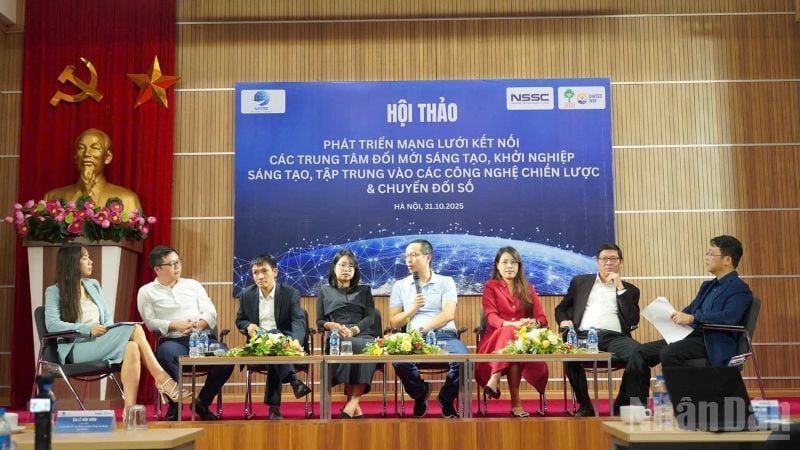
On the afternoon of October 31, in Hanoi, a large number of delegates attended the Workshop “Developing a network connecting innovation centers, creative startups - focusing on strategic technologies and digital transformation”. The Workshop was chaired by the National Center for Supporting Innovative Startups (NSSC) under the Agency for Technology Startups and Enterprises (NATEC), Ministry of Science and Technology , in coordination with the Department of Innovation, the Institute for Management and Sustainable Development (MSD - United Way Vietnam) and technology communities.
In his opening speech, Mr. Le Toan Thang, Director of the National Center for Supporting Innovative Startups (NSSC), emphasized: Innovation and digital transformation are not only trends, but have become core driving forces for national competitiveness. The formation of a network of innovation and creative startup centers is an inevitable requirement to connect entities - businesses, institutes - schools, social organizations and investors, in a unified ecosystem, open cooperation and mutual development.
“We will continue to play a leading role, connecting resources, promoting inter-regional and inter-sectoral coordination mechanisms, helping Vietnam's innovation ecosystem become more sustainable, more synchronous and internationally oriented,” said Mr. Thang.
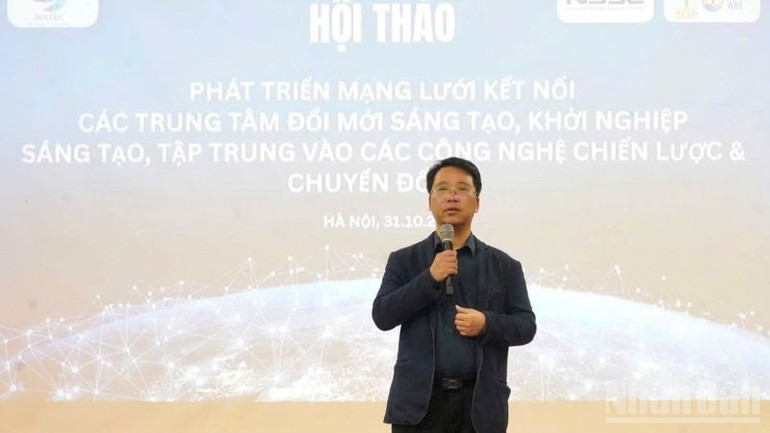
Developing a unified and interconnected network of innovation centers
The workshop recorded many professional opinions from experts and speakers sharing different perspectives related to the development of a unified and interconnected network of innovation centers in Vietnam.
According to Dr. Khong Quoc Minh, Department of Innovation, Ministry of Science and Technology, the new strategic orientations under the Law on Science, Technology and Innovation 2025 (Law No. 93/2025/QH15) and Resolution 193/2025/QH15 of the National Assembly are a turning point in thinking, making "innovation" an independent legal content for the first time, creating a corridor to promote the science and technology market, commercialize research results and establish innovation centers and venture capital funds nationwide.
Therefore, enterprises need to become the center of Vietnam's innovation ecosystem, developing based on five pillars: technological innovation, productivity improvement, new technology creation, creative startups and building a culture of innovation in enterprises.
Mr. Minh proposed a three-tier network model including national and regional centers (NIC, NSSC...), centers by industry, strategic technology fields (AI, cybersecurity, energy, biology, new materials), and local-institute-school centers, along with six key solutions on standardization, digital infrastructure, institutions, investment, human resources and the leading role of the national center.
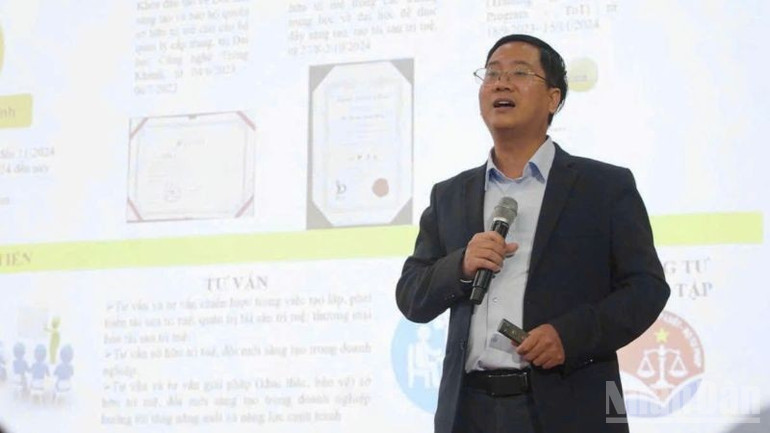
Sharing international and domestic experiences related to promoting startups and national innovation related to strategic industries, Ms. Nguyen Phuong Linh, Director of the Institute for Management and Sustainable Development (MSD - United Way Vietnam), head of the Open Social Innovation community, analyzed in depth two typical international models: Dutch Diamond (Netherlands): a "four-house" cooperation model - government , businesses, research institutes and civil society - operating according to the Public-Private Co-creation principle. Each innovation initiative has co-investment, co-creation and co-measurement of impact. Thanks to this model, the Netherlands has formed "innovation growth poles" such as Brainport Eindhoven or FoodValley Wageningen, becoming the global top 5 in terms of innovation index.
On this occasion, Ms. Linh also shared the Shinhan Square Bridge model (Korea): a private innovation center model built by Shinhan Financial Group, combining incubation, acceleration and social impact. This model has been deployed in different provinces of Korea and in Vietnam through coordination by MSD Institute.
Developing an open, connected and sustainable Vietnamese innovation ecosystem
According to Ms. Linh, in Vietnam, the model connects with the state, social organizations, and 200 different experts and partners to create an ecosystem to support more than 65 Vietnamese and Korean startups in the fields of education technology, environment, health, etc.
“International experience shows that open institutional infrastructure and multi-stakeholder cooperation councils are needed; in addition to the state sector, the private sector can become the core connecting the innovation ecosystem, if they view innovation not only as profit but also as social impact.
“Open social innovation is not just about technology, but also about the infrastructure of trust, knowledge and shared data. Each center and network is a link in Vietnam’s innovation map. To take advantage of the opportunities of digital transformation and strategic technologies, the key is not whether each center does well alone, but rather the ability to connect and cooperate between centers, networks and regions and share the same goal for sustainable development,” Ms. Linh emphasized.
From practical experience, Mr. Tran Quang Hung, Deputy Secretary of the Hanoi Youth Union, Chairman of Hub-Network and Dr. Vu Viet Anh, Chairman of Success Academy shared their experiences in connecting youth startup networks and connecting EdTech and MarTech startup ecosystems. These are networks that not only stop at the national network but also spread internationally.
Within the framework of the workshop, at the panel discussion session with the theme "Promoting inter-network cooperation for open innovation mechanisms", co-chaired by Mr. Le Toan Thang and Ms. Nguyen Phuong Linh, the speakers discussed the cooperation and sharing mechanisms between innovation centers and networks; the role of data, intellectual property and information security in the open ecosystem; as well as the connection between the private sector - academia - social organizations.
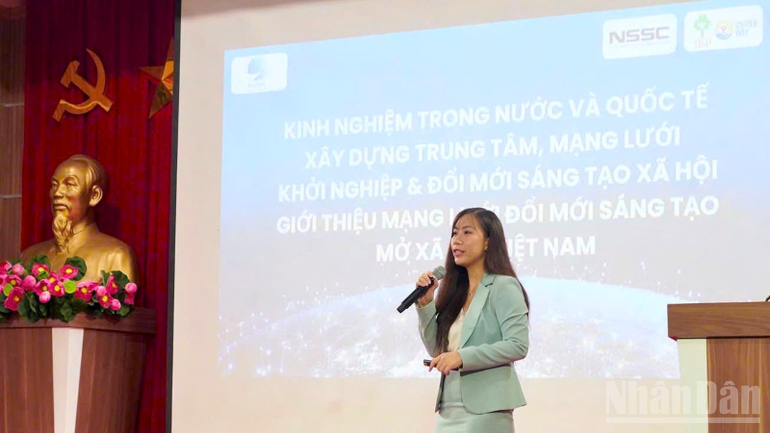
Around the topic of connecting networks and different actors from the ecosystem, speakers from the AI and Cybersecurity networks shared perspectives of strategic industries on market and development challenges.
From the institutional perspective, innovation networks in universities are diverse, vibrant and creative but still limited in connecting with the private sector, so there needs to be more opportunities to connect with business networks, strategic technology and other innovation support centers. At the same time, speakers also discussed a lot about commitment in the spirit of connection and value sharing.
The workshop is not only a forum for sharing, but also the first step for the National Innovation Centers Cooperation Alliance, where all parties, from the state, businesses, institutes and schools to the technology community, participate in developing an open, connected and sustainable Vietnamese innovation ecosystem.
Source: https://nhandan.vn/ket-noi-phat-trien-mang-luoi-cac-trung-tam-doi-moi-sang-tao-khoi-nghiep-sang-tao-post919720.html




















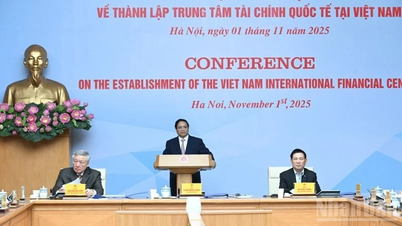


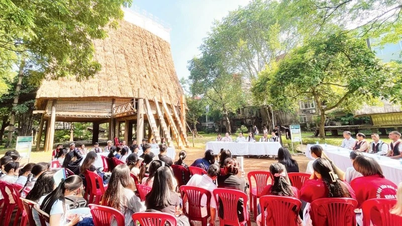
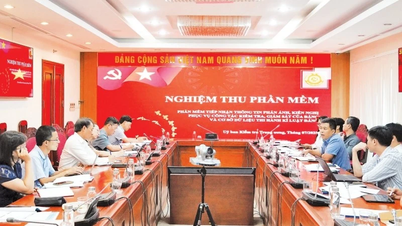
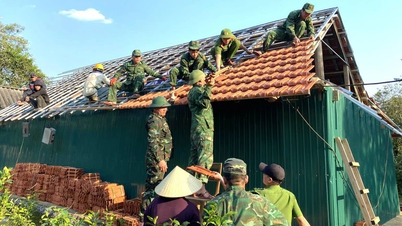









































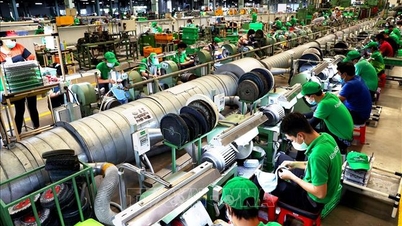

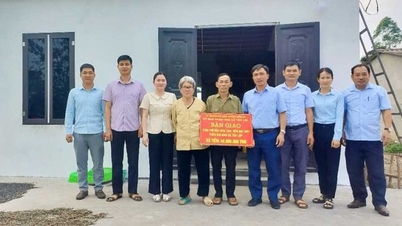
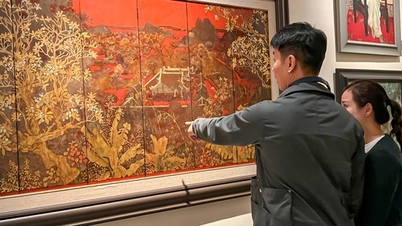








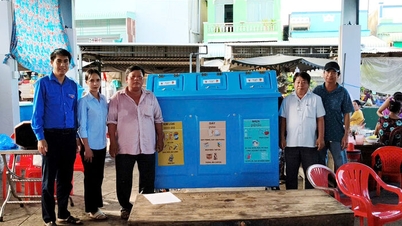
























Comment (0)